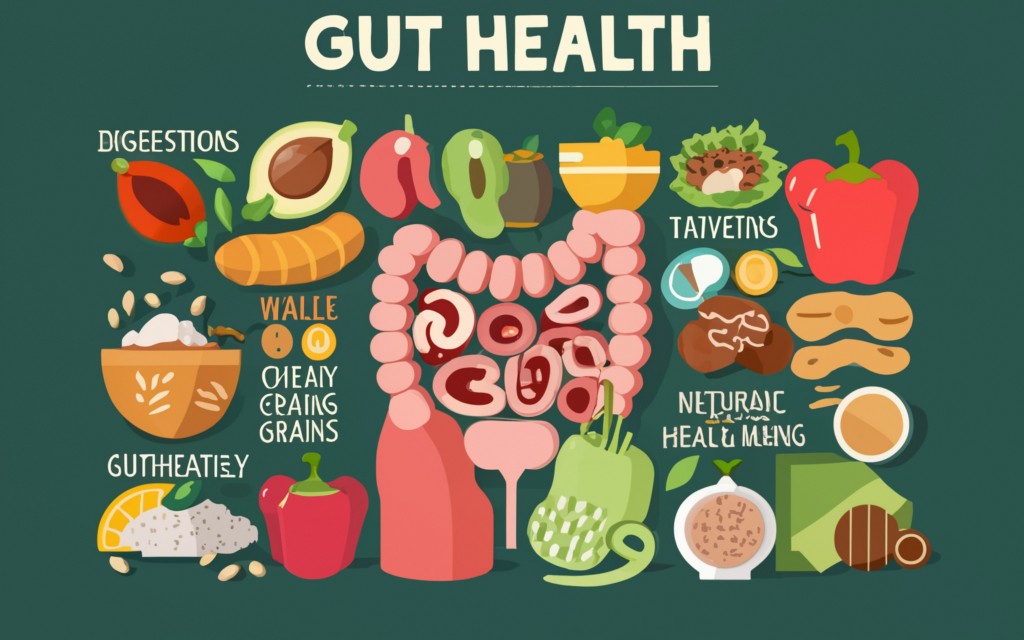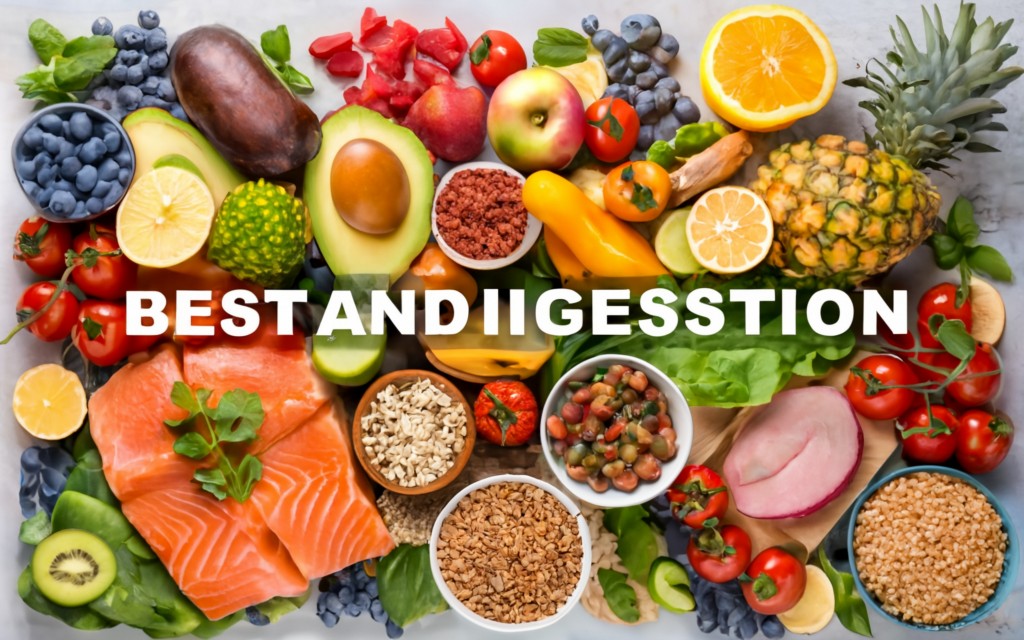Table of Contents
Maintaining a healthy digestive system is crucial for overall well-being. A well-functioning digestive system ensures that your body efficiently absorbs nutrients, which in turn supports various bodily functions. Poor digestion can lead to discomfort, bloating, constipation, and other health issues. Including the best provisions for digestion in your diet can significantly enhance your gut health and overall quality of life. In this article, we’ll explore the top foods that promote healthy digestion.

1. Yogurt
Yogurt is a powerhouse of probiotics, which are beneficial bacteria that live in your digestive tract. These probiotics help maintain a healthy balance of gut flora, aiding digestion and boosting your immune system. Regular consumption of yogurt can alleviate symptoms of irritable bowel syndrome (IBS) and other digestive disorders. Choose plain, unsweetened yogurt with live active cultures for the best results.
2. Ginger
It contains compounds called gingerols and shogaols, which stimulate the production of digestive enzymes and enhance motility in the digestive tract. Adding fresh ginger to your meals or sipping on ginger tea can help reduce nausea, indigestion, and bloating.
3. Leafy Greens
Leafy greens such as spinach, kale, and Swiss chard are rich in fiber, vitamins, and minerals that support digestive health. Additionally, leafy greens contain magnesium, which helps maintain muscle contractions in the gastrointestinal tract.
4. Whole Grains
Whole grains like oats, brown rice, and quinoa are excellent sources of dietary fiber, which is essential for healthy digestion. Fiber aids in the smooth passage of food through the digestive system, preventing constipation and promoting a healthy gut. Whole grains also provide essential nutrients such as B vitamins, iron, and magnesium, which contribute to overall digestive health.
5. Papaya
Papaya is a tropical fruit that contains an enzyme called papain, which helps break down proteins and aids in digestion. Eating papaya can relieve constipation, bloating, and other digestive issues. It’s also rich in fiber and water content, making it a hydrating and nutritious choice for promoting gut health.
6. Fermented Foods
Fermented foods like sauerkraut, kimchi, kefir, and miso are excellent for digestion. These foods are rich in probiotics, which enhance the gut microbiome and improve digestive function. Regular consumption of fermented foods can reduce inflammation, enhance nutrient absorption, and prevent digestive disorders.

7. Bananas
Bananas are gentle on the stomach and easy to digest, making them ideal for those with digestive issues. They are rich in fiber, particularly pectin, which helps normalize bowel function. Bananas also contain potassium, which balances electrolytes and promotes muscle function in the digestive tract.
8. Chia Seeds
When soaked in water, chia seeds form a gel-like substance that aids in bowel regularity and prevents constipation. Adding chia seeds to your diet can improve digestion and provide long-lasting energy.
9. Fennel
The digestive benefits of fennel seeds and bulbs are known because they contain anethole, a compound that relaxes the muscles of the gastrointestinal tract. This action helps reduce gas, bloating, and cramps. Chewing on fennel seeds after meals or adding fennel to your dishes can promote better digestion.

10. Beets
Beets are rich in fiber, vitamins, and minerals that support digestive health. They contain betaine, a compound that helps improve stomach acid levels and promote healthy digestion. Consuming beets can enhance liver function, which plays a vital role in detoxification and digestion.
11. Apples
Apples are a great source of soluble and insoluble fiber, which aids in digestion and promotes regular bowel movements. The pectin in apples acts as a prebiotic, feeding the good bacteria in your gut. Eating apples with the skin on can maximize their digestive benefits.
12. Bone Broth
Bone broth is a nutrient-dense food that supports digestive health. It contains collagen, gelatin, and amino acids that help repair the gut lining and reduce inflammation. Sipping on bone broth can soothe the digestive tract and improve nutrient absorption.
13. Peppermint
Peppermint is known for its soothing effects on the digestive system. It contains menthol, which relaxes the muscles of the gastrointestinal tract, reducing symptoms of IBS, indigestion, and bloating. Drinking peppermint tea or using peppermint oil can promote better digestion.

Conclusion
Incorporating these best foods for digestion into your diet can significantly improve your gut health and overall well-being. A balanced diet rich in fiber, probiotics, and essential nutrients supports a healthy digestive system, preventing discomfort and promoting regular bowel movements. Remember to stay hydrated, exercise regularly, and manage stress to further enhance your digestive health. By making mindful dietary choices, you can enjoy a healthier gut and a better quality of life.
